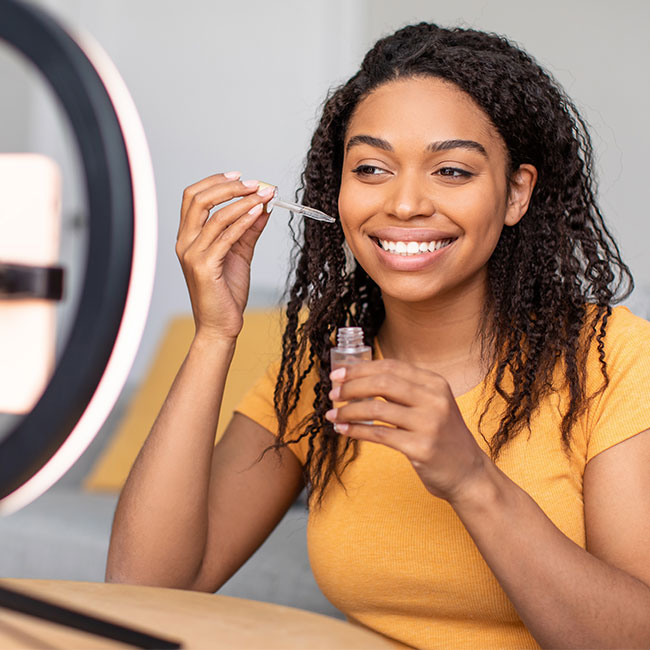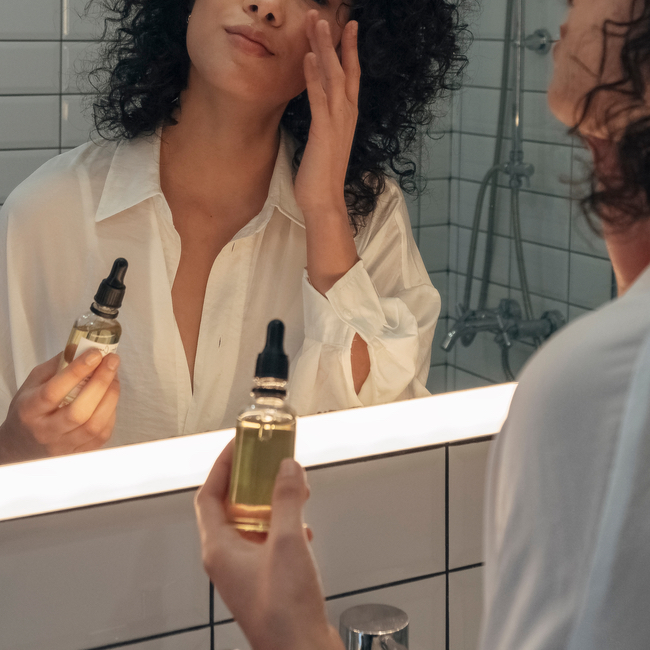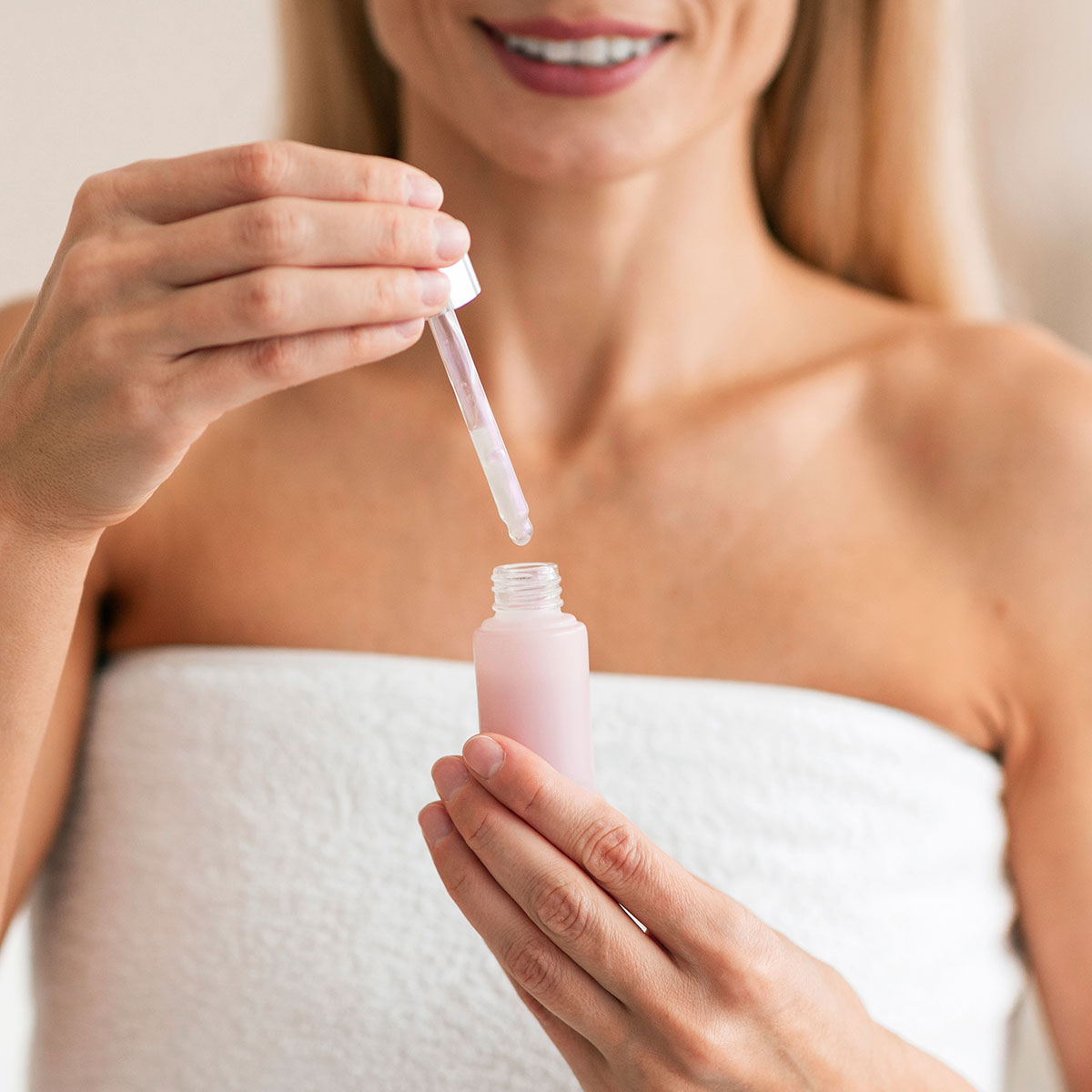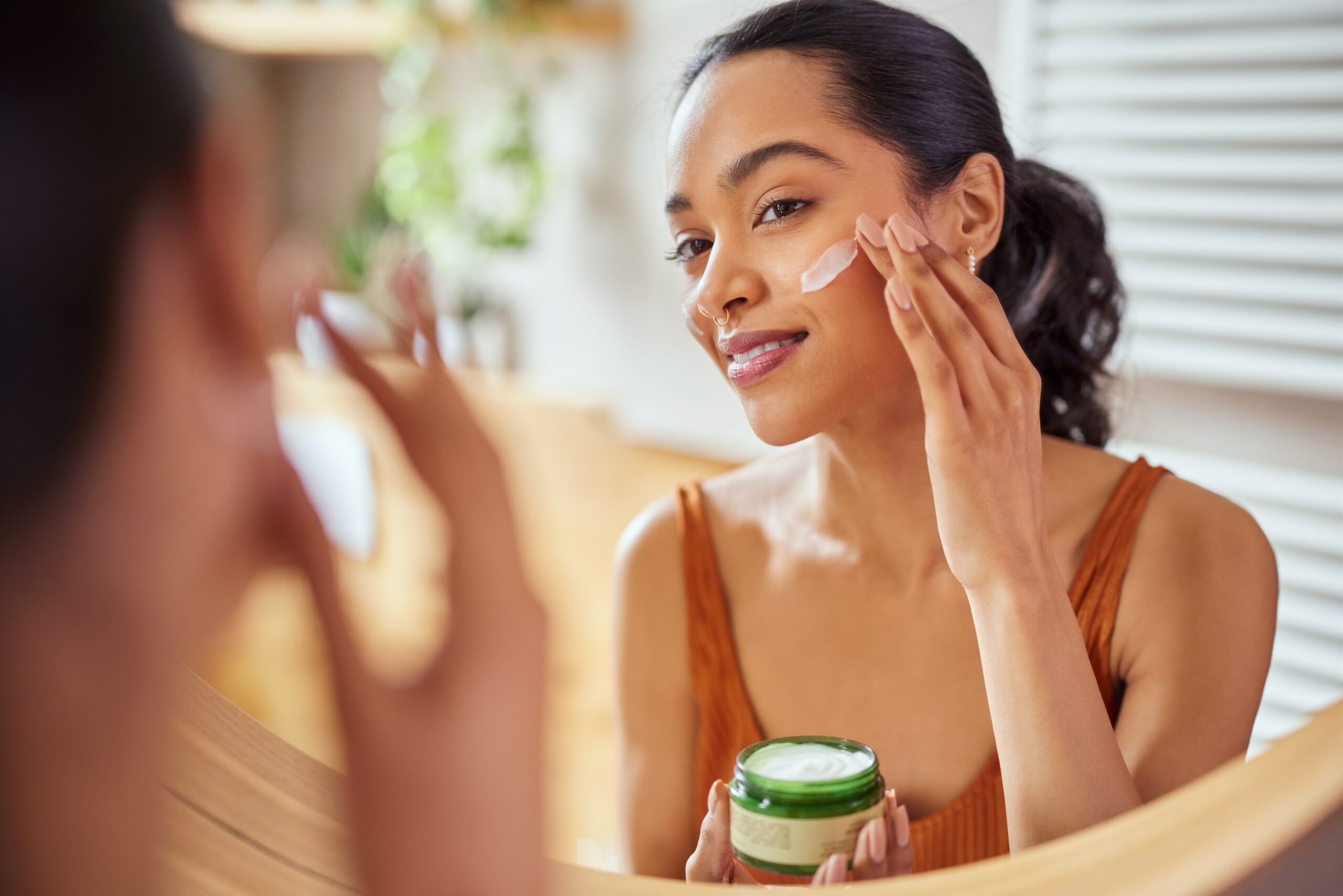While skincare products can’t completely erase or eradicate wrinkles (since they are inevitable with age), there are still several serum ingredients that dermatologists say can help diminish or lessen the appearance of fine lines. We asked dermatologists and skincare experts for three go-to serum ingredients that can help fix dull, sagging, wrinkled skin and help it look brighter, more supple, and hydrated when used daily. Read on for tips, suggestions and insight from Dr. Anna Chacon, M.D., board-certified dermatologist and writer at My Psoriasis Team and Dr. Angela Casey, M.D., board-certified dermatologist and founder of youth skincare line Bright Girl.


1. Gycolic Acid
Using a gycolic acid serum can help boost collagen, the most abundant protein in the human body that promotes skin elasticity, Chacon says. "Glycolic acid is my favorite ingredient that is rejuvenating," Chacon notes. She explains that its "anti-aging properties" also help it serve as a "skin brightener" when used in a serum. In addition, Chacon points out that gycolic acid can help exfoliate your skin when needed, speed up cell turnover, and ultimately, boost collagen that can smooth fine lines and improve your overall skin tone.

2. Vitamin C
Preventing additional or more noticeable wrinkles by protecting your skin from the sun is truly the "best medicine" when it comes to your skin health, Casey says. She adds that using a vitamin C serum every morning after cleansing your face and before applying sunscreen is essential for a more supple, radiant look. After washing your face with a "pH-balanced, gentle cleanser using lukewarm water," Casey instructs to then "apply an antioxidant serum, such as vitamin C." Antioxidants are an important morning skincare step, she notes, as they "arm" your skin to be prepared for all of the "environmental pollutants and irritants that we encounter throughout the day." She advises to think of antioxidant serums as "an extra layer of protection on your skin."

3. Hyaluronic Acid
Every night, after cleansing your face and before applying moisturizer while preparing for bed, Casey suggests adding a hyaluronic acid serum to your anti-aging routine. This, she says, will healthily hydrate your skin while you sleep, leading to a more refreshed, youthful-esque look upon waking. "Hyaluronic acid is a humectant, a substance that draws water toward it," Casey explains. Being so hygroscopic, i.e., water-loving, hyaluronic acid "literally attracts water into the hyaluronic acid molecule," Casey continues. She notes that this hyaluronic acid molecule can "bind up to 1,000 times its weight in water." She recommends thinking of how important this molecule can be in keeping your skin hydrated."
Overall, when we apply an effective skincare product, such as hyaluronic acid, at night, we will see "optimal efficacy of the product," Casey says. Because our skin is so dependent on water and hydration to function properly, it is "essential for the skin to stay hydrated in order to stay strong and perform its protective functions." Hyaluronic acid applied to the skin at night "penetrates into the skin, and then continues to attract water towards it, allowing for better hydration of the skin," Casey concludes. Skin that is well-hydrated stays strong, resilient, and healthy, and helps wrinkles to look less defined.


























